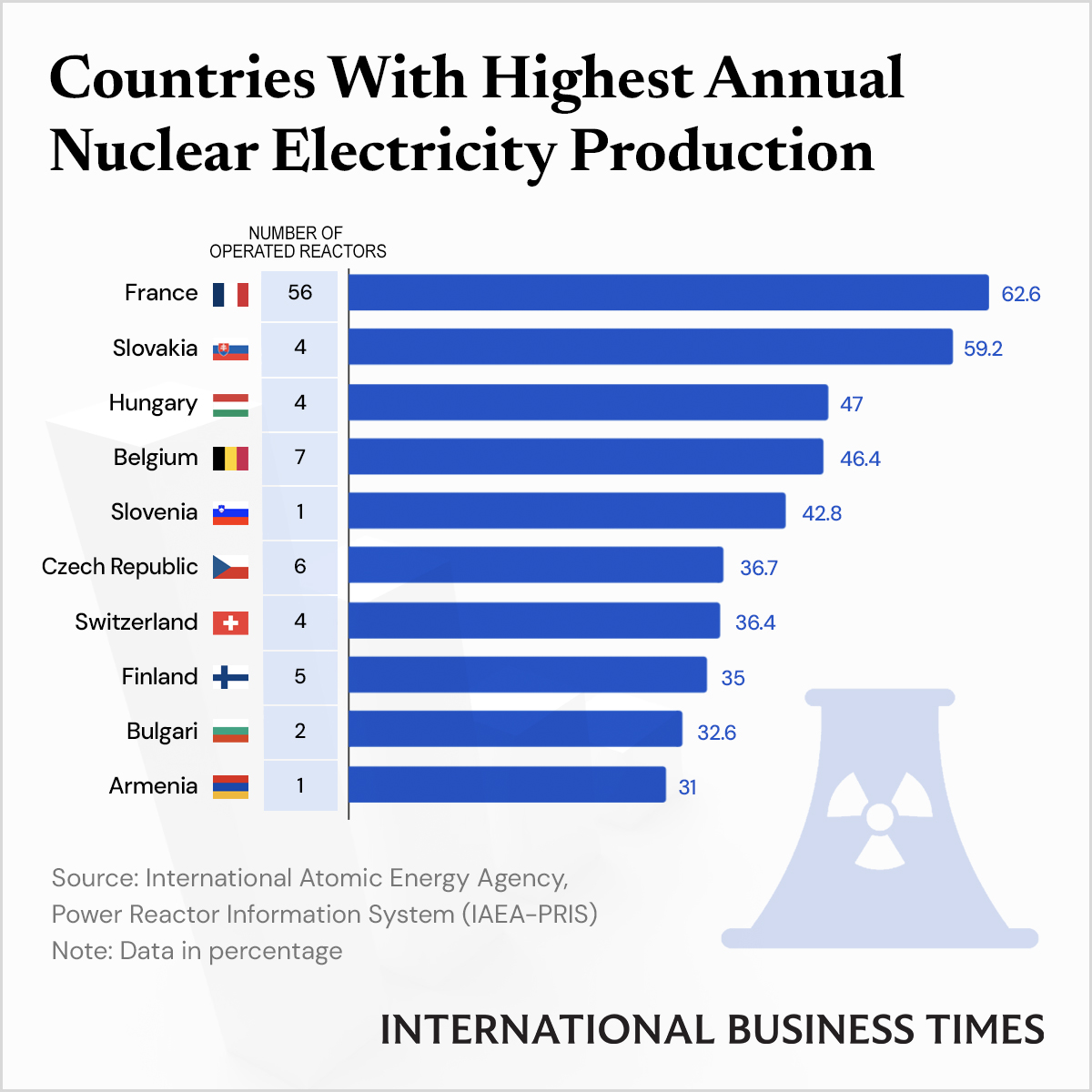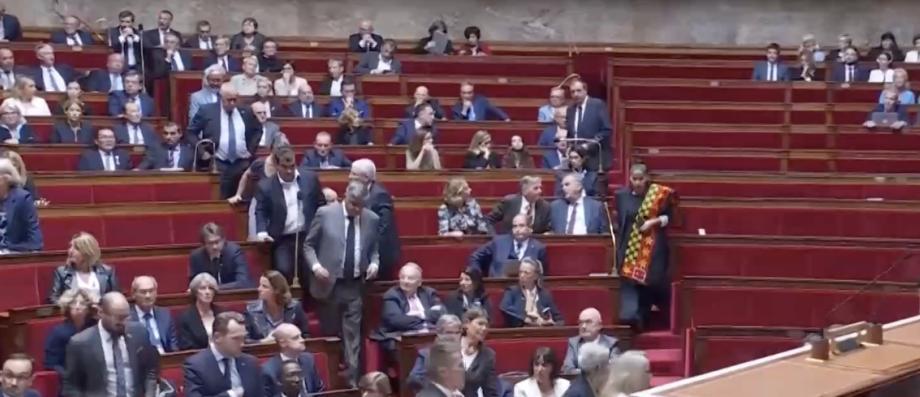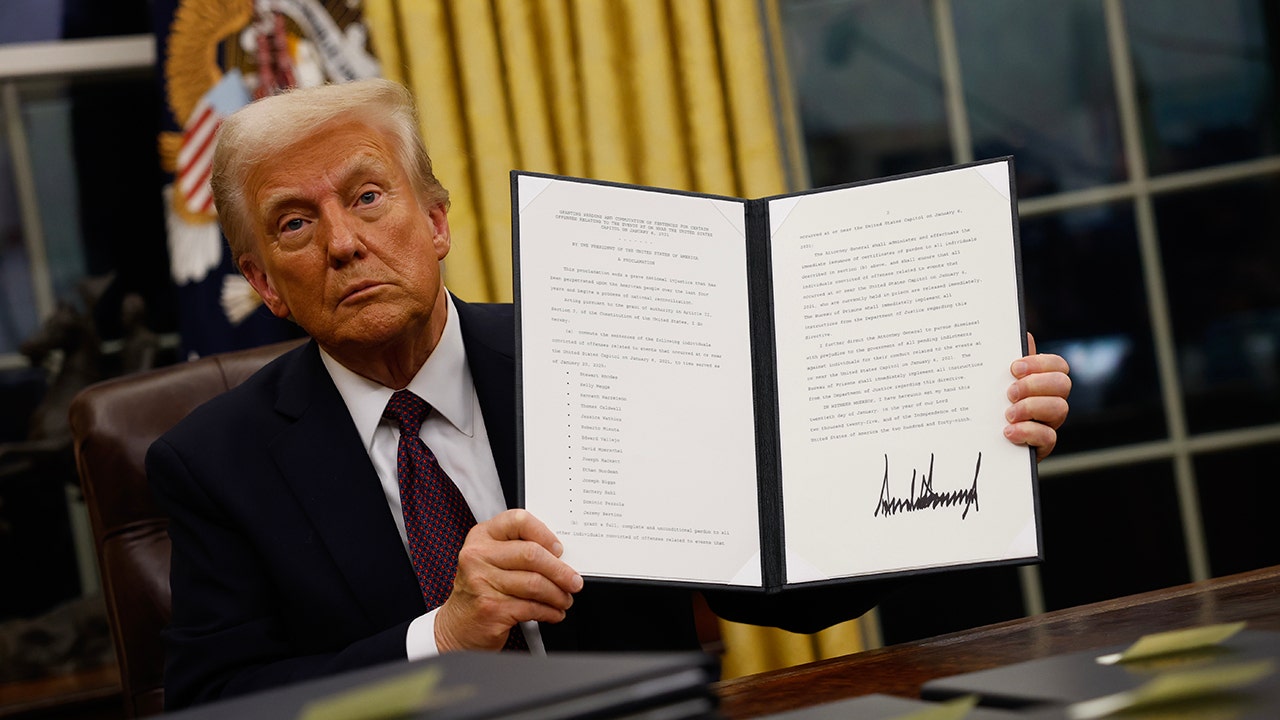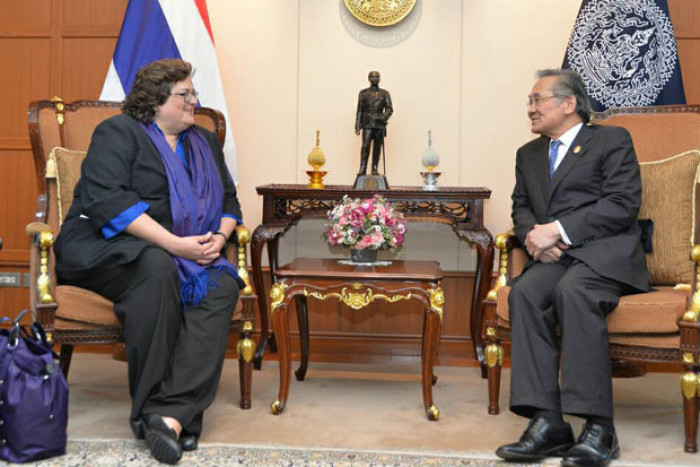France's Nuclear Shield: A Proposal For Shared European Security

Table of Contents
H2: The Current State of European Security
Europe faces unprecedented security challenges. Russian aggression in Ukraine has shattered the post-Cold War security order, highlighting the limitations of existing defense mechanisms. Terrorism and extremist ideologies continue to pose a significant threat, requiring robust counter-terrorism strategies. Furthermore, the increasing sophistication of cyber warfare necessitates a coordinated European response capable of mitigating these threats. Existing European defense mechanisms, often reliant on NATO, face budgetary constraints and struggle to provide a comprehensive response to the multifaceted threats.
- Rising tensions with Russia: The ongoing conflict in Ukraine underscores the need for a stronger, more unified European defense posture. Russia's aggressive actions highlight the vulnerability of individual nations and the necessity for collective security measures.
- The threat of terrorism and extremism: The rise of extremist groups and the potential for transnational terrorist attacks necessitate enhanced intelligence sharing and coordinated counter-terrorism efforts across Europe.
- The increasing sophistication of cyber warfare: Cyberattacks pose a significant threat to critical infrastructure and national security, requiring a collaborative approach to cybersecurity defense across the continent.
- NATO's limitations in responding to specific threats: While NATO remains a crucial security alliance, its structure and decision-making processes can sometimes prove slow and cumbersome in responding to specific and rapidly evolving threats.
H2: France's Nuclear Deterrent: A Cornerstone of European Security
France's nuclear deterrent, developed independently since the 1960s, represents a cornerstone of its national security and has played a vital role in maintaining stability in Europe. The force, comprising submarine-launched ballistic missiles (SLBMs) and air-launched cruise missiles, ensures the credibility of French deterrence policy. This capability, coupled with a robust commitment to nuclear non-proliferation, offers a unique asset for a broader European security framework.
- Independent nuclear capability since the 1960s: France's long history with nuclear weapons has provided it with valuable experience and expertise in nuclear deterrence, technology, and strategy.
- Modernization of nuclear arsenal (e.g., submarine-launched ballistic missiles): France's continuous investment in modernizing its nuclear arsenal ensures the continued credibility and effectiveness of its deterrent.
- Credibility of French deterrence policy: The reliability and readiness of France's nuclear forces are widely recognized, bolstering its position as a key security actor in Europe.
- Strong commitment to nuclear non-proliferation: France's adherence to international non-proliferation treaties and its active role in promoting nuclear disarmament strengthen its legitimacy in the international community.
H2: A Proposal for Shared European Security through France's Nuclear Shield
Integrating France's nuclear capabilities into a broader European framework requires a carefully designed approach. This could involve establishing a joint European nuclear security council responsible for strategic decision-making in times of crisis. This council would facilitate joint military exercises, training initiatives, and the sharing of intelligence and early warning systems to enhance preparedness and responsiveness.
- Establishing a joint European nuclear security council: This council would provide a forum for consultation and coordination among participating nations, ensuring transparency and promoting consensus on nuclear security issues.
- Developing protocols for consultation and decision-making in crisis situations: Clear protocols and procedures would be crucial in ensuring a swift and effective response to potential threats.
- Enhancing intelligence sharing and early warning systems: Improved intelligence sharing would bolster collective situational awareness and enhance the effectiveness of preventative measures.
- Ensuring strict control and non-proliferation measures: Robust safeguards would be implemented to prevent the proliferation of nuclear weapons and maintain control over existing arsenals.
H3: Addressing Concerns Regarding Control and Responsibility
Integrating France's nuclear shield into a shared European security framework will undoubtedly raise concerns about national sovereignty and control. To address these, transparent mechanisms ensuring participation and input from all member states are crucial. This may involve the establishment of veto rights on certain critical decisions, providing each member state with a level of assurance and control.
- Ensuring national sovereignty of participating nations: Member states would retain ultimate control over their own national security policies, but collectively agree on strategies concerning shared threats.
- Establishing clear lines of command and control: A clear chain of command and decision-making processes would need to be defined to avoid ambiguity and ensure effective response during crises.
- Implementing transparency measures: Openness and transparency in decision-making processes would be essential to building trust and ensuring accountability among participating nations.
- Addressing potential veto power scenarios: Mechanisms to manage veto powers would ensure the framework remains effective while respecting individual national sovereignty.
H2: The Benefits of Shared European Security
A more integrated European security architecture, leveraging France's nuclear shield, offers numerous advantages. This would significantly enhance deterrence against potential adversaries, promoting stability and peace. Sharing resources would lead to cost-effectiveness, optimizing budget allocation and maximizing the impact of defense spending. Furthermore, the initiative would promote greater political unity and cooperation among European nations, fostering a stronger sense of collective identity and purpose.
- Stronger overall deterrence against potential adversaries: A unified front would present a more credible deterrent to potential aggressors, reducing the likelihood of conflict.
- Increased efficiency and cost savings through shared resources: Pooling resources would streamline operations, reduce redundancy, and enhance efficiency.
- Greater political cohesion and cooperation amongst European nations: A shared security framework would strengthen bonds between nations and promote closer collaboration on security issues.
- Reduced reliance on external powers for security: This strategy would enhance Europe's strategic autonomy and reduce dependence on external actors for security guarantees.
3. Conclusion
This article has argued that integrating France's nuclear shield into a framework of shared European security offers a significant opportunity to strengthen European defense and bolster collective deterrence. By addressing concerns around control and responsibility, and focusing on the mutual benefits, a more secure and unified Europe can be achieved. Further research and open dialogue are crucial for developing a comprehensive strategy for utilizing France's nuclear shield as a cornerstone of shared European security. Let's work together to build a more secure future through constructive discussions on integrating France's Nuclear Shield into a broader European framework. The future of European security hinges on such collaboration and the innovative use of existing resources, such as France's nuclear deterrent, for the collective good.

Featured Posts
-
 Fanatics Supporting The Celtics Back To Back Nba Finals Bid With Exclusive Merchandise
May 09, 2025
Fanatics Supporting The Celtics Back To Back Nba Finals Bid With Exclusive Merchandise
May 09, 2025 -
 The Maha Movement And Trumps Surgeon General Pick Casey Means
May 09, 2025
The Maha Movement And Trumps Surgeon General Pick Casey Means
May 09, 2025 -
 Clarification Politique Borne Envisage La Fusion De Renaissance Et Du Modem
May 09, 2025
Clarification Politique Borne Envisage La Fusion De Renaissance Et Du Modem
May 09, 2025 -
 The Billionaire Without Berkshire Shares A Potential Canadian Successor To Buffett
May 09, 2025
The Billionaire Without Berkshire Shares A Potential Canadian Successor To Buffett
May 09, 2025 -
 De Xuat Giai Phap Sau Vu Bao Mau Tat Tre O Tien Giang Bao Ve Tre Em Hieu Qua Hon
May 09, 2025
De Xuat Giai Phap Sau Vu Bao Mau Tat Tre O Tien Giang Bao Ve Tre Em Hieu Qua Hon
May 09, 2025
Latest Posts
-
 News From The Bangkok Post The Push For Better Transgender Rights
May 10, 2025
News From The Bangkok Post The Push For Better Transgender Rights
May 10, 2025 -
 The Bangkok Post And The Ongoing Struggle For Transgender Equality
May 10, 2025
The Bangkok Post And The Ongoing Struggle For Transgender Equality
May 10, 2025 -
 The Impact Of Trumps Executive Orders On The Transgender Community A Call For Stories
May 10, 2025
The Impact Of Trumps Executive Orders On The Transgender Community A Call For Stories
May 10, 2025 -
 Examining Transgender Equality Issues Highlighted By The Bangkok Post
May 10, 2025
Examining Transgender Equality Issues Highlighted By The Bangkok Post
May 10, 2025 -
 The Bangkok Post And The Fight For Transgender Equality In Thailand
May 10, 2025
The Bangkok Post And The Fight For Transgender Equality In Thailand
May 10, 2025
